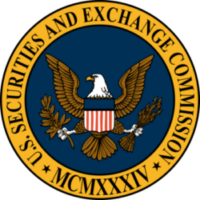Regulation Best Interest or “Reg BI,” which became effective on June 30, 2020, established a standard of conduct for securities broker-dealers or “brokerage firms” and their associated persons or “stockbrokers,” and “financial advisors” when they “recommend” securities transactions to retail customers. Rule 15l-1(a)(1) of the Exchange Act, 17 CFR § 240.15l-1(a)(1).
Reg BI requires a brokerage firm and its associated persons or registered representatives, when making a “recommendation” to a retail customer of any securities transaction or investment strategy involving securities (including account recommendations) to act in the best interest of the retail customer without placing the financial or other interest of the member or associated person ahead of the interest of the retail customer.
 Securities broker-dealers or “brokerage firms” and their “associated persons,” more commonly known as stockrokers or financial advisors are registered with the Financial Industry Regulatory Authority or “FINRA.” Securities broker-dealers execute securities transactions, and either directly or through a clearing firm maintain custody of customer funds and securites. As a condition of their membership are required to arbitrate claims with “public customers.”
Securities broker-dealers or “brokerage firms” and their “associated persons,” more commonly known as stockrokers or financial advisors are registered with the Financial Industry Regulatory Authority or “FINRA.” Securities broker-dealers execute securities transactions, and either directly or through a clearing firm maintain custody of customer funds and securites. As a condition of their membership are required to arbitrate claims with “public customers.”
“Investment advisors,” do not effect securities transactions for commissions, but instead provide investment advice and typically manage customer accounts held by a brokerage in exchange for a fee. Investment advisors are not required to be registered with FINRA, instead, they merely need to be registered with the United States Securities & Exchange Comission. They are not required to maintain any form of Errors and Omissions Liability Insurance for customer claims resulting from their misconduct, and often, by agreement require their customers to bring arbitration claims in private, and often expensive forums such as before the American Aritration Association “AAA” or JAMS, as a deterent to customers bringing these claims.
Concurrent with the adoption of Reg BI, the United States Securities & Exchange Commission also published an interpretation concerning the duties of “investment advisors” and the standard of conduct under the Investment Advisers Act of 1940.
Investment Advisors have always been subject to certain fiduciary duties, including under the Investment Advisor Act. However, aside from claims typically sounding in breach of fiduciary duty or negligence, there is no private right of action under the Investment Advisers Act of 1940.
Securities broker-dealers and stockbrokers argue that they owe no fiduciary or other duties to their customers, in connection with their recommendations particularly with respect to non-discretionary accounts. They are mere order takers and believe or often argue that their duties begin and end with the execution of customer orders.
However, long before Reg BI, reasonable basis suitability imposes and standard of care requires due diligence as the risks and chacteristics of a particular securities, and whether it is suitable or apprpriate for a particular customer before a stockbroker makes a specific investment recommendation to buy sell, or hold, or recommends an “investment strategy.”
Recommendations made to advance the stockbroker or securities broker-dealers’ financial interests at the expense of the customer has always been actionable as self-dealing and the breach of a fiduciary duty (arising under the state common law), and the omission or non-disclosure of compensation, or conflicts of interest may be cognizable as a material misstatement or omission of material fact made with with intent to deceive or defraud under the anti-fraud provisions of the Securities Exchange Act of 1934, and SEC Rule 10b-5, and the Blue Sky laws of the various states where such conduct may actionable by private persons.
Reg BI, and recent promulgations by both FINRA and the SEC help clean this all up.
As FINRA has explained, for purposes of Reg BI, whether a “recommendation” is made is interpreted consistent with precedent under the federal securities laws and applied under FINRA rules. See Reg BI Adopting Release, supra note 1, at 33337.
As the SEC explained, “the determination of whether a broker-dealer has made a recommendation that triggers application of Regulation a recommendation.” Id. at 33335 (citation omitted). See also Notice to Members 01-23; (March 2001); Regulatory Notice 11-02 (January 2011); Regulatory Notice 12-25 (May 2012).
Also, where a BD agrees to provide a retail customer with specified account monitoring services, under Reg BI, such an agreement will result in buy, sell or hold recommendations even when the recommendation to hold is implicit. See Reg BI Adopting Release at 33325.
Best Interest should turn on the facts and circumstances of the particular situation and therefore, whether a recommendation has taken place is not susceptible to a bright line definition. Factors considered in determining whether a recommendation has taken place include whether the communication ‘reasonably could be viewed as a call to action’ and ‘reasonably would influence an investor to trade a particular security or group of securities.’
 The more individually tailored the communication to a specific customer or a targeted group of customers about a security or group of securities, the greater the likelihood that the communication may be viewed as a recommendation.
The more individually tailored the communication to a specific customer or a targeted group of customers about a security or group of securities, the greater the likelihood that the communication may be viewed as a recommendation.
This general obligation is satisfied only by complying with four specified component obligations: the Care Obligation, the Disclosure Obligation, the Conflict of Interest Obligation and the Compliance Obligation. See also, Regulatory-Notice-23-20 (December 5, 2023); Regulatory-Notice-20-18 (June 19, 2020).
The Care Obligation
The Care Obligation requires the securities broker-dealer and its associated person, or its registered representative, in making the recommendation, to exercise reasonable diligence, care and skill to:
• understand the nature of the recommended security or investment strategy involving a security—as well as the potential risks, rewards and costs of the recommended security or investment strategy—and have a reasonable basis to believe that the recommendation could be in the best interest of at least some retail customers based on that understanding;
• have a reasonable basis to believe that the recommendation is in the best interest of a particular retail customer based on that retail customer’s investment profile and the potential risks, rewards and costs associated with the recommendation and does not place the financial or other interest of the member or associated person ahead of the interest of the retail customer;
• have a reasonable basis to believe that a series of recommended transactions, even if in the retail customer’s best interest when viewed in isolation, is not excessive and is in the retail customer’s best interest when taken together in light of the retail customer’s investment profile and does not place the financial or other interest of the member or associated person ahead of the interest of the retail customer. Exchange Act Rule 15l-1(a)(2)(ii).
The Disclosure Obligation
The Disclosure Obligation requires the securities broker-dealer and its associated person, prior to or at the time of the recommendation, to provide the retail customer, in writing, full and fair disclosure of all material facts relating to the scope and termsof the relationship with the retail customer and all material facts relating to conflicts of interest that are associated with the recommendation. Material facts relating to the scope and terms of the relationship with the retail customer that must be disclosed include, but are not limited to:
• that the securities broker-dealer and its associated person person is acting in the capacity of a Broker-Dealer or associated person, i.e. stockbroker, with respect to the recommendation;
• the material fees and costs that apply to the retail customer’s transactions, holdings and accounts; and the type and scope of services provided to the retail customer, including any material limitations on the securities or investment strategies involving securities that may be recommended to the retail customer. Exchange Act Rule 15l-1(a)(2)(I).
The Conflict of Interest Obligation
The Conflict of Interest Obligation requires securities brokerage firms to identify and address conflicts of interest that may incline the member or its stockbrokers or associated persons—consciously or unconsciously—to make a recommendation that is not disinterested. Specifically, brokerage firms must establish, maintain and enforce written policies and procedures reasonably designed to:
• identify and at a minimum disclose, pursuant to the Disclosure Obligation, or eliminate, all conflicts of interest associated with recommendations;
• identify and mitigate any conflicts of interest associated with recommendations that create an incentive for the securities broker-dealers’ stockbrokers to place their interest or the interest of the member ahead of the retail customer’s interest;
• identify and disclose any material limitations (e.g., a limited product menu) placed on the securities or investment strategies involving securities that may be recommended to a retail customer and any conflicts of interest associated with such limitations and prevent such limitations and associated conflicts of interest from causing the brokerage firm or the broker to make recommendations that place the interest of the brokerage firm or the broker ahead of the retail customer’s interest; and
• identify and eliminate sales contests, sales quotas, bonuses and non-cash compensation that are based on the sale of specific securities or specific types of securities within a limited period of time.
Exchange Act Rule 15l-1(a)(2)(iii).
The Compliance Obligation
Under the Compliance Obligation, a the brokerage firms must establish, maintain, and enforce written policies and procedures reasonably designed to achieve compliance with Reg BI. Exchange Act Rule 15l-1(a)(2)(iv).
In addition, Reg BI’s Compliance Obligation requires a broker-dealer to establish, maintain, and enforce written policies and procedures reasonably designed to achieve compliance with Reg BI. According to the Adopting Release, a broker “should consider the nature of that firm’s operations and how to design such policies and procedures to prevent violations from occurring, detect violations that have occurred, and to correct promptly any violations that have occurred.”
On December 27, 2023, LPL Financial agreed to pay fines and penalties in excess of $6.1 million as a result of among other things, the firm’s failure to comply with Reg BI. Department of Enforcement v. LPL Financial LLC, Letter of Acceptance, Waiver and Consent, No. LPL Financial LLC AWC (December 27, 2023). According to FINRA
As of June 30, 2020, broker-dealers and their associated persons are required to comply with Regulation Best Interest under the Securities Exchange Act of 1934. Reg BI’s Compliance Obligation, set forth at Exchange Act Rule 15l-1(a)(2)(iv), requires a brokerdealer to establish, maintain, and enforce written policies and procedures reasonably designed to achieve compliance with Reg BI, including Reg BI’s Care Obligation.
The Adopting Release provides that broker-dealers should consider the nature of that firm’s operations and how to design such policies and procedures to prevent violations from occurring, detect violations that have occurred, and to correct promptly any violations that have occurred.
A violation of Reg BI also constitutes a violation of FINRA Rule 2010. Reg BI’s Care Obligation, set forth at Exchange Act Rule 15l-1(a)(2)(ii), requires brokerdealers and their associated persons to have a reasonable basis to believe that a recommendation of any securities transaction or investment strategy involving securities (including account recommendations) to a retail customer is in the best interest of a particular retail customer based on that retail customer’s investment profile and the potential risks, rewards, and costs associated with the recommendation. Reg BI defines a “retail customer investment profile” to include the same information as FINRA Rule 2111.
Similarly, on June 15, 2022, the United States Securities & Exchange Commission brought an action against Western International Securities, Inc., and several of its associated persons for among other things, the violation of Reg BI. United States Securities & Exchange Commission v. Western International Securities, Inc., Case 2:22-cv-04119 (C.D. Cal. June 6, 2022).
 According to the SEC, between July of 2020 and April of 2021, registered representatives of Western recommended and sold approximately $13.3 million in GWG Class L Bonds to retail customers.
According to the SEC, between July of 2020 and April of 2021, registered representatives of Western recommended and sold approximately $13.3 million in GWG Class L Bonds to retail customers.
GWG Holdings, Inc. is a Delaware corporation headquartered in Minnesota, which through its subsidiaries, purchases life insurance policies on the secondary market at a discount to the face value of the policies. GWG purchased almost all of the policies it owns with funds borrowed from financial institutions or investors. GWG had a history of losses and insufficient cash flows to fund its operations. GWG bonds were “illiquid, speculative, investments that involve a high degree of risk.” As of even date, GWG Bonds are substantially worthless.
According to the SEC complaint, these recommendations violated Regulation Best Interest in several ways. Regulation Best Interest requires that a broker, dealer, or associated person act in the best interest of a retail customer when making a recommendation of a securities transaction (“Reg BI’s Best Interest Obligation”).
The SEC further noted that brokerage firms comply with Reg BI’s Best Interest Obligation only if they comply with four component obligations (“Reg BI’s Component Obligations”): the Disclosure Obligation, the Care Obligation, Conflict of Interest Obligation, and the Compliance Obligation. Similarly, associated persons of broker-dealers comply with Reg BI’s Best Interest Obligation only if they comply with the Disclosure Obligation and the Care Obligation.
On March 3, 2023, Judge Otis D. Wright, II, of the United States District Court for the Central District of California struck certain affirmative defenses put forth by Defendants, including that the Commission was engaged in selective enforcement of Reg BI.
The matter remains pending.
On January 9, 2024, FINRA released its Annual Regulatory Oversight Report.
In the Report FINRA found that broker-dealers are still violating basic requirements of their four-year-old Regulation Best Interest and Customer Relationship Summary obligations, and recommended “additional” policies that brokerage firms should undertake and implement to comply with Reg BI.
FINRA found that brokerage firms continue to violate Reg BI by recommending complex and illiquid products that are “inconsistent” with clients’ investment profiles that exceed preset concentration limits. FINRA also said in its report that some firms ignore or do not adequately mitigate conflicts of interests, particularly with private placement sales, where firms have failed to conduct “reasonable” investigations of the private placement offerings.
According to the FINRA Report, firms have had “inadequate responses to red flags,” in their supervisory systems, including those designed to meet “know your customer” obligations under securities laws and Finra’s rules.
FINRA suggests that disclosure would help. However, disclosure should not excuse an otherwise tainted investment recommendation.
FINRA does however suggest hat firms “document” why recommendations are in clients’ best interest.
Compensation has always been the root of all evil. In this respect, FINRA suggests that compensation should be clearly disclosed (and perhaps not buried in 300 pages of offering documents), and wants broker-dealers to “assess if any compensation motivates brokers to make recommendations “that are not in their retail customers’ best interests,” but which includes “incentives” for the recommending broker and brokerage firm.
Historically, these incentives have also included issuer paid seminars, including “free-dinners” or free-luncheons, often at upscale establishments, extolling the virtues of these often high cost, high commission products. Since 2007, FINRA and other regulators have been particularly concerned with the use of aggressive or “misleading sales tactics aimed at seniors, particularly the use of ‘free lunch’ seminars, where “[a]mong the most common practices were inaccurate or exaggerated claims regarding the safety, liquidity or expected returns of the investment or strategy being touted.” Notice to Members 07-43.
Guiliano Law Group, P.C.
Our practice is limited to the representation of investors. We accept representation on a contingent fee basis, meaning there is no cost to you unless we make a recovery for you. There is never any charge for a consultation or an evaluation of your claim. For more information, contact us at (877) SEC-ATTY.
For more information concerning common claims against stockbrokers and investment professionals, or FINRA Securities Arbitration, and the legal process, please visit us at securitiesarbitrations.com
